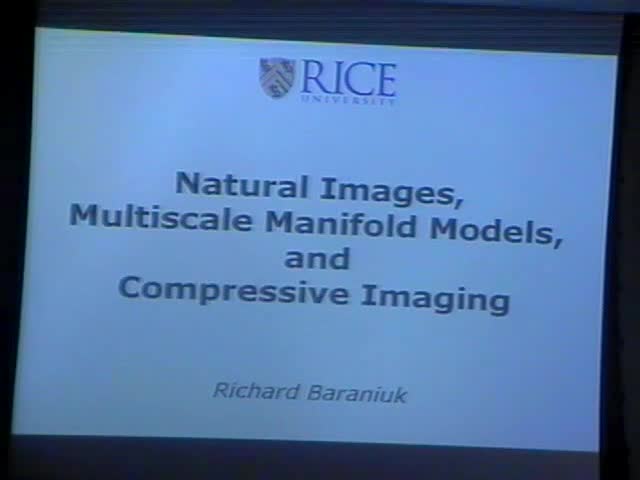Natural Images, Multiscale Manifold Models, and Compressive Imaging
Presenter
March 6, 2006
Keywords:
- Dimensional analysis
MSC:
- 00A73
Abstract
The images generated by varying the underlying articulation parameters
of an object (pose, attitude, light source position, and so on) can be
viewed as points on a low-dimensional "image appearance manifold"
(IAM) in a high-dimensional ambient space. In this talk, we will
expand on the observation that typical IAMs are not differentiable, in
particular if the images contain sharp edges. However, all is not
lost, since IAMs have an intrinsic multiscale geometric structure. In
fact, each IAM has a family of approximate tangent spaces, each one
good at a certain resolution. In the first part of the talk, we will
focus on the particular inverse problem of estimating, from a given
image on or near an IAM, the underlying parameters that produced it.
Putting the multiscale structural aspect to work, we develop a new
algorithm for high-accuracy parameter estimation based on a
coarse-to-fine Newton iteration through the family of approximate
tangent spaces. This algorithm is reminiscent of recently proposed
algorithms for multiscale image registration and super-resolution. In
the second part of the talk, we will explore IAMs in the context of
"Compressive Imaging" (CI), where we attempt to recover an image from
a small number of (potentially random) projections. To date, CI has
focused on sparsity-based image models; we will discuss how IAM models
could offer better performance for geometry-rich images.
This is joint work with Michael Wakin, Hyeokho Choi, and David Donoho.
